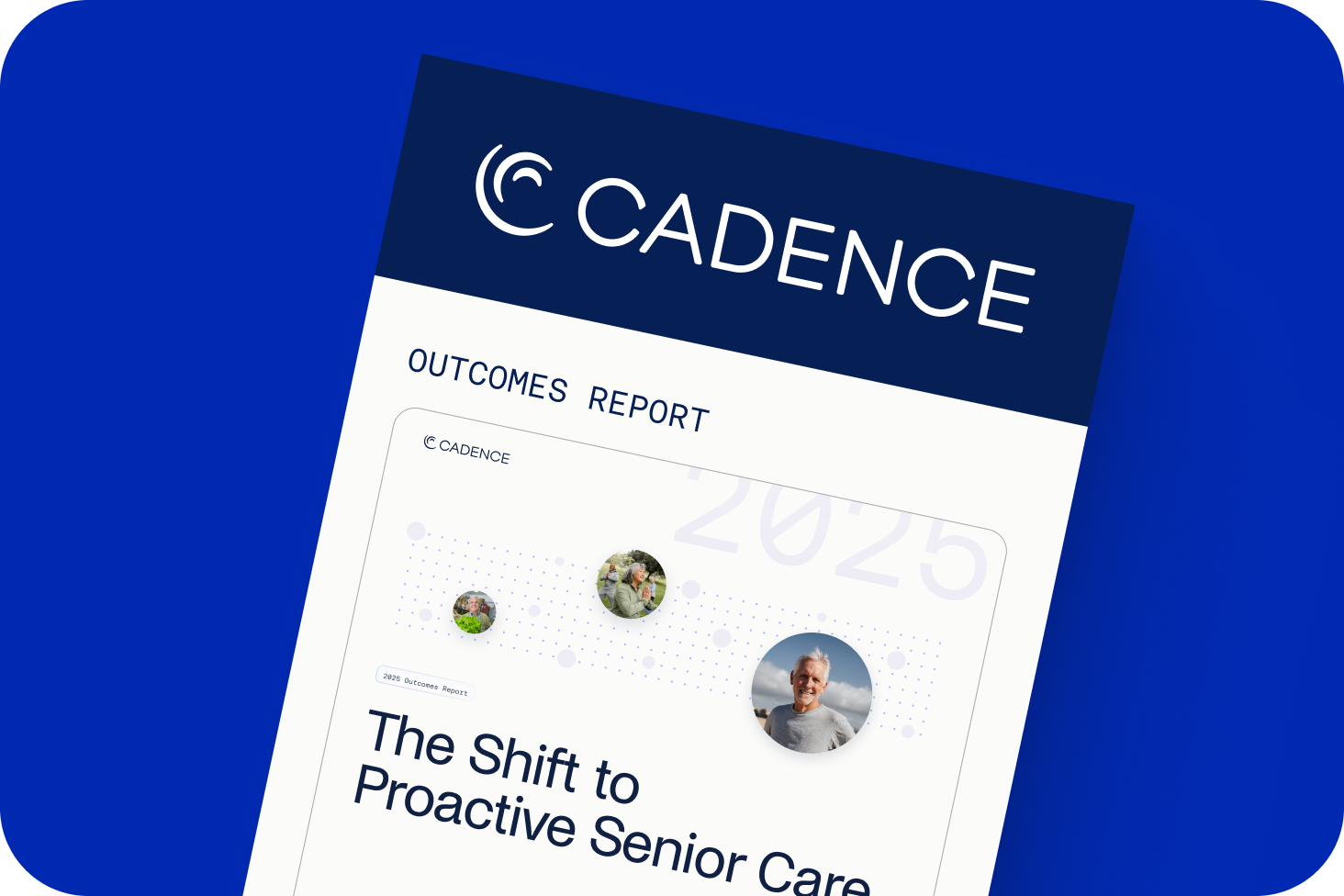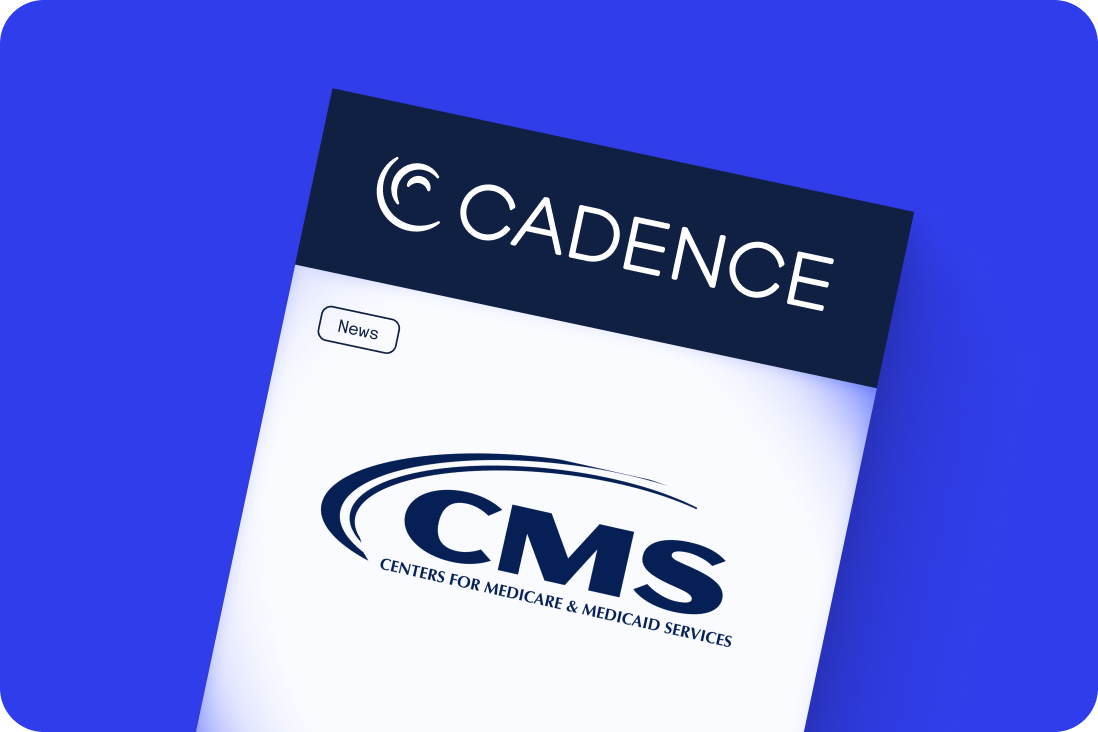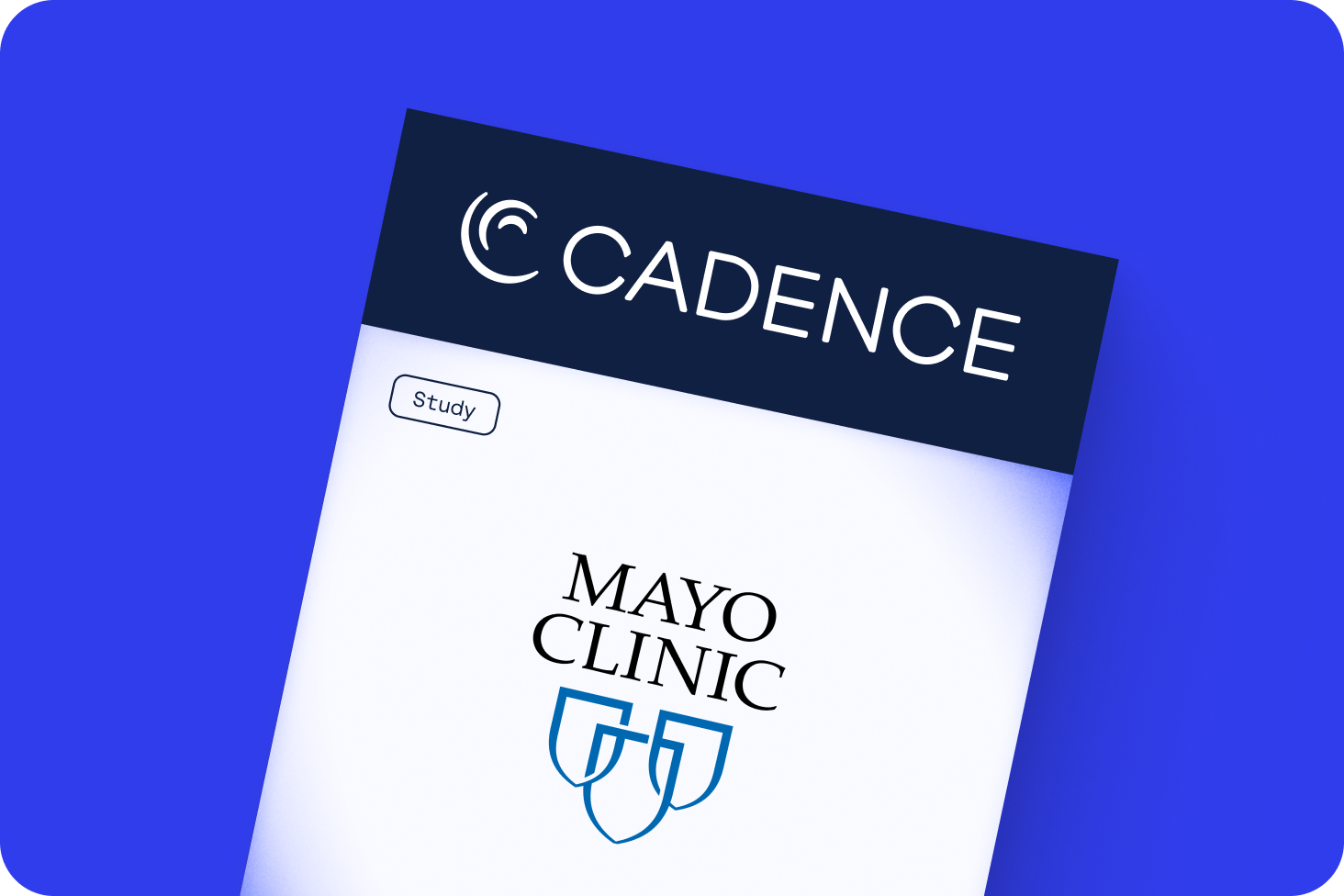New JACC Advances study: Remote Patient Care significantly improves blood pressure control at scale
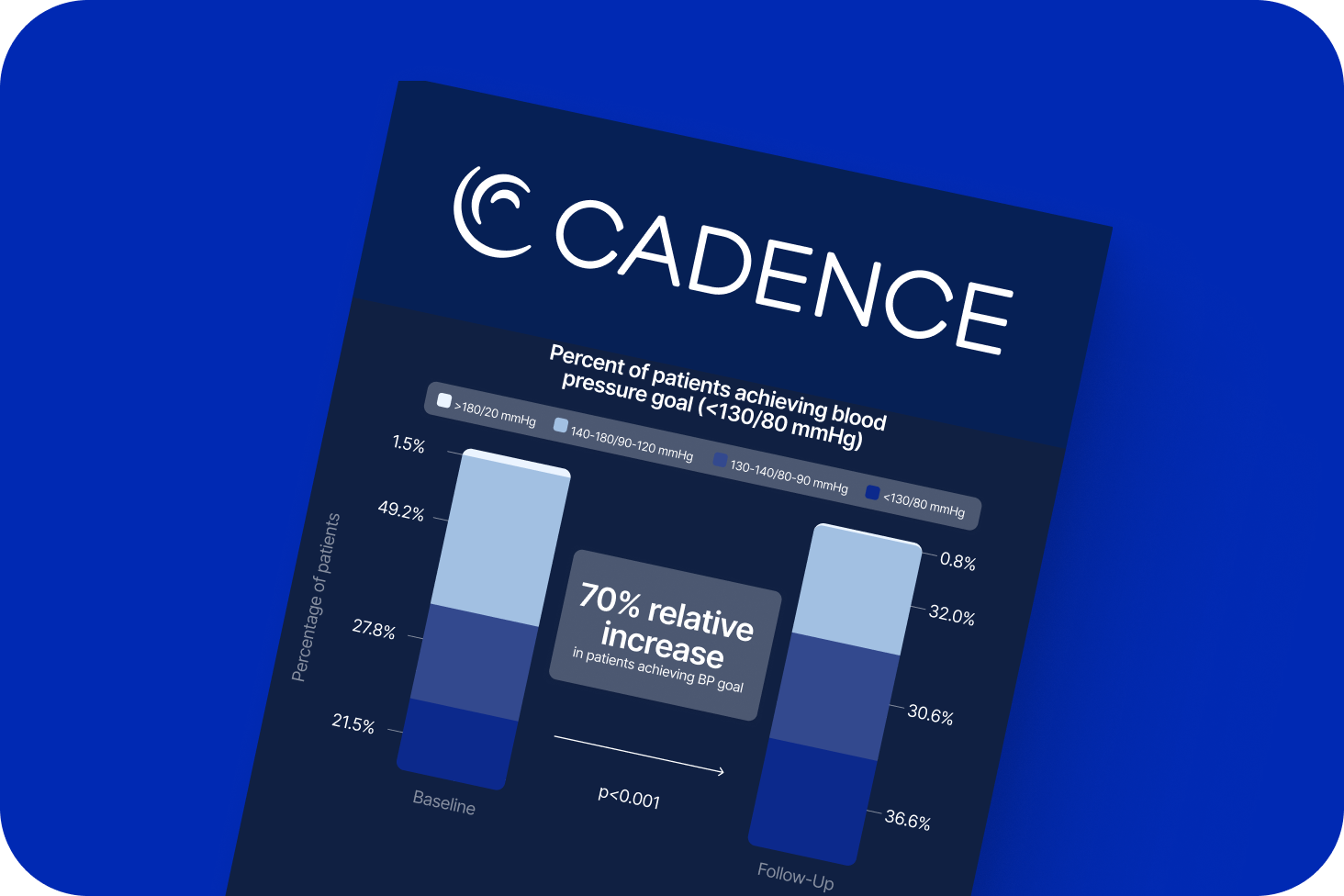
A new peer-reviewed study published in the Journal of the American College of Cardiology: Advances reveals the ability of Remote Patient Care to deliver clinically meaningful blood pressure reductions among 23k+ enrolled patients, a majority of whom reside in rural or underserved communities. The paper represents one of the largest published studies evaluating the impact of remote care on hypertension, reinforcing the opportunity to address the growing burden of uncontrolled hypertension through consistent, connected support at home.
The study evaluated 23,638 patients enrolled in Cadence’s national remote care delivery program. On average, participants saw their blood pressure drop by 7/5 mmHg(p<0.001). Notably, there was a 70% relative increase in the number of patients achieving guideline-recommended blood pressure goals (p<0.001).
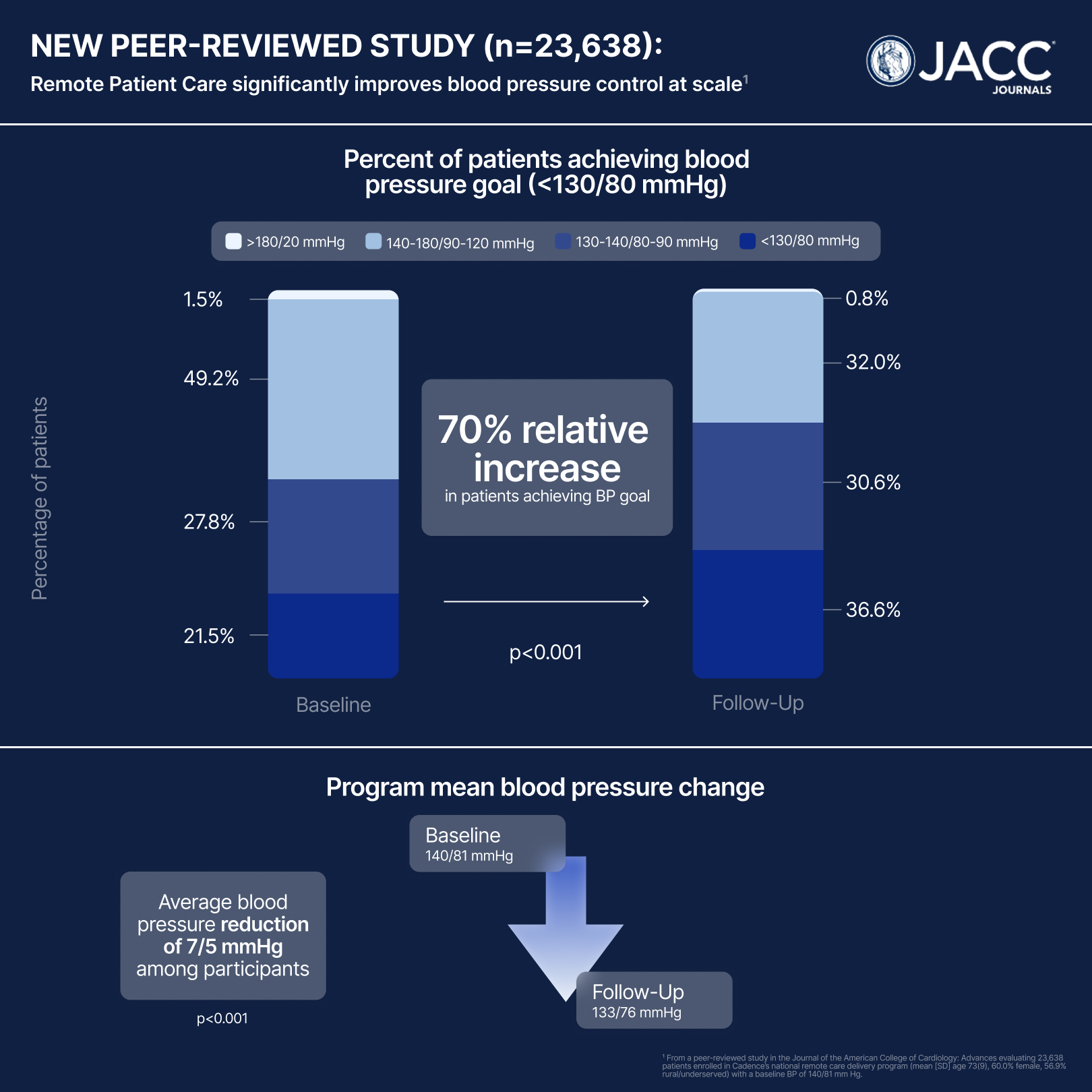
Dr. David Feldman, Cadence medical advisor, interventional cardiology fellow at Massachusetts General Hospital and lead author on the paper shared: “This study highlights the clinical impact of a coordinated Remote Patient Care program for hypertension patients across the country regardless of geographic area. Not only can these programs engage patients in the management of their chronic disease, but by doing so, can meaningfully increase the likelihood of achieving guideline directed clinical goals. With rates of chronic diseases skyrocketing across the nation, Remote Patient Care programs in close collaboration with longitudinal clinicians are required to alleviate the burden of disease faced by both clinicians and, most importantly, patients.”
These results demonstrate that proactive, team-based care can work at scale across a diverse patient population, regardless of geographic area and disease severity. In fact, the clinical impact was consistent among patients living in rural or underserved areas, who made up more than 50% of the total cohort.
“What is most rewarding is that this program equally benefited those patients susceptible to certain health disparities, which has historically resulted in a lower quality of care and worse outcomes. This further validates the potential for Remote Patient Care programs to help address the nationwide chronic disease burden despite the presence of multiple social determinants of health,” added Dr. Feldman.
The paper also highlights the scale of Cadence’s operational model, including:
- 11.8 million+ vitals measured
- 177,620 clinical encounters completed
- 118,792 phone calls made
- 117,457 high-acuity clinical alerts resolved
The strongest results were observed in patients enrolled in Cadence’s "Full Medication Program," which allows the clinical team to make hypertension-related medication decisions using approved guideline-based protocols. These patients saw a 79% increase in those achieving blood pressure control – from 20.5% to 36.6%.
“We’ve long known that hypertension is a modifiable risk factor, but achieving control consistently across diverse patient populations nationwide remains a major challenge. This model shows what’s possible when patients receive regular, timely clinical support outside the clinic,” shared Dr. Feldman.
This study validates Cadence’s model as a scalable way to extend clinical reach by delivering consistent, between-visit care in an attempt to proactively help patients achieve clinical goals while minimizing preventable emergencies, all without adding burden to longitudinal clinicians. It’s a proven approach to meet the needs of a growing, aging population no matter where patients live.
Read the full study in the Journal of the American College of Cardiology: Advances here: https://www.sciencedirect.com/science/article/pii/S2772963X25003126




